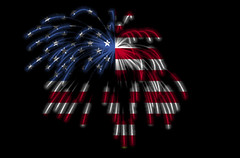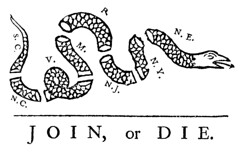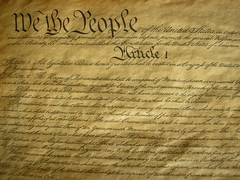| 11125823680 | The French and Indian War | 1754-1763 War between French and British in American colonies part of 7 years |  | 0 |
| 11125823681 | The Proclamation of 1763 | Line drawn by British Parliament, colonists not allowed to settle past Appalachian mountains |  | 1 |
| 11125823682 | Stamp Act | 1765 direct tax on a stamp that must be put on paper, office documents, etc. |  | 2 |
| 11125823683 | The Coercive Acts | punitive acts applied to Massachusetts in retaliation for the Boston Tea Party; referred to by colonists as the Intolerable Acts |  | 3 |
| 11125823684 | Common Sense | 1776: a pamphlet written by Thomas Paine that claimed the colonies had a right to be an independent nation |  | 4 |
| 11125823685 | The Declaration Of Independence | 1776 statement, issued by the Second Continental Congress, explaining why the colonies wanted independence from Britain. |  | 5 |
| 11125823686 | Battle of Saratoga | American victory over British troops in 1777 that was a turning point in the American Revolution. |  | 6 |
| 11125823687 | French American Alliance | pact signed by the Americans and the French after the Battle of Saratoga, paving the way for French support of the colonial war for independence and binding the two countries together long-term |  | 7 |
| 11125823688 | Treaty of Paris | 1783 treaty ending the Revolutionary War |  | 8 |
| 11125823689 | Articles of confederation | first government of the United States; extremely weak government that gave most of the power to states |  | 9 |
| 11125823690 | The Northwest Ordinance of 1787 | a law that established a procedure for the admission of new states to the Union and set the boundary for slavery at the Ohio River |  | 10 |
| 11125823691 | Shay's Rebellion | A 1787 rebellion in which ex-Revolutionary War soldiers attempted to prevent foreclosures of farms as a result of high interest rates and taxes |  | 11 |
| 11125823692 | The Constitution | document which spells out the principles by which the US government runs and the fundamental laws that govern society |  | 12 |
| 11125823693 | The Great Compromise | a compromise between the New Jersey and Virginia plans that created the Senate and the House of Representatives; each state received equal number of senators, states received representatives based on population |  | 13 |
| 11125823694 | The Three-Fifths compromise | Agreement at the creation of the Constitution that each slave counted as three-fifths of a person in determining representation in the House for representation and taxation purposes |  | 14 |
| 11125823695 | The Federalists papers | This collection of essays by John Jay, Alexander Hamilton, and James Madison; explained the importance of a strong central government; published to convince New York to ratify the Constitution |  | 15 |
| 11125823696 | Federalists | Supported the ratification of the Constitution and a strong federal government |  | 16 |
| 11125823697 | Anti-federalists | early opponents of the Constitution during the period of ratification; opposed the Constitution's powerful centralized government, arguing that the Constitution gave too much political, economic, and military control |  | 17 |
| 11125823698 | The Bill of rights | First ten amendments to the Constitution, drafted by Madison, created limitations on government and protects natural rights. |  | 18 |
| 11125823699 | Alexander Hamilton | 1789-1795; First Secretary of the Treasury. He advocated creation of a national bank, assumption of state debts by the federal government, and a tariff system to pay off the national debt; strong federalist |  | 19 |
| 11125823700 | Washington's farewell address | He warned against the dangers of political parties and foreign alliances. |  | 20 |
| 11125823701 | XYZ Affair | A 1797 incident in which French officials demanded a bribe from U.S. diplomats | 21 | |
| 11125823702 | Alien and Sedition Acts | Series of four laws enacted in 1798 to reduce the political power of recent immigrants and limit political opposition to the federalists |  | 22 |
| 11125823703 | Kentucky and Virginia Resolutions | Republican documents that argued that the Alien and Sedition Acts were unconstitutional; claimed that states have the authority to nullify federal laws |  | 23 |
| 11125823704 | Enlightenment | A philosophical movement which started in Europe in the 1700's and spread to the colonies. It emphasized reason and the scientific method. Writers of the enlightenment tended to focus on government, ethics, and science, rather than on imagination, emotions, or religion. Many members of the Enlightenment rejected traditional religious beliefs in favor of Deism, which holds that the world is run by natural laws without the direct intervention of God. |  | 24 |
| 11125823705 | John Locke | English philosopher who advocated the idea of a "social contract" in which government powers are derived from the consent of the governed and in which the government serves the people; also said people have natural rights to life, liberty and property. |  | 25 |
| 11125823706 | George Whitefield | Christian preacher whose tour of the English colonies attracted big crowds; prominent preacher during the First Great Awakening |  | 26 |
| 11125823707 | First Great Awakening | Religious revival in the colonies in 1730s and 1740s; George Whitefield and Jonathan Edwards preached a message of atonement for sins by admitting them to God; the movement attempted to combat the growing secularism and rationalism of mid-eighteenth century America |  | 27 |
| 11125823708 | Pietism | A Christian revival moment characterized by Bible study, the conversion experience, and the individual's personal relationship with God. It began as an effort to reform the German Lutheran Church in the mid-seventeenth century and became widely influential in Britain and its colonies in the eighteenth century. |  | 28 |
| 11125823709 | Ben Franklin | A delegate from Pennsylvania and proposed the "Albany Plan of the Union" as a way to strengthen colonies. |  | 29 |
| 11125823710 | Abolition | The movement to make slavery and the slave trade illegal; begun by Quakers in England in the 1780s |  | 30 |
| 11125823711 | representation | A basic principle of traditional democratic theory that describes the relationship between the few leaders and the many followers |  | 31 |
| 11125823712 | Sugar Act of 1764 | An act that raised tax revenue in the colonies for the crown. It also increased the duty on foreign sugar imported from the West Indies. |  | 32 |
| 11125823713 | Vice-Admiralty Courts | In these courts, British judges tried colonials in trials with no juries. |  | 33 |
| 11125823714 | Virtual Representation | The political theory that a class of persons is represented in a lawmaking body without direct vote. |  | 34 |
| 11125823715 | Quartering Act of 1765 | Act forcing colonists to house and supply British forces in the colonies; created more resentment; seen as assault on liberties. |  | 35 |
| 11125823716 | English Common Law | The centuries-old body of legal rules and procedures that protected the lives and property of the British monarch's subjects. |  | 36 |
| 11125823717 | Declaratory Act | Act passed in 1766 after the repeal of the Stamp Act; stated that Parliament had authority over the the colonies and the right to tax and pass legislation "in all cases whatsoever." |  | 37 |
| 11125823718 | Townshend Acts | A tax that the British Parliament passed in 1767 that was placed on lead, glass, paint, and tea |  | 38 |
| 11125823719 | Popular Sovereignty | A belief that ultimate power resides in the people. |  | 39 |
| 11125823720 | Thomas Jefferson | Wrote the Declaration of Independence; 3rd President of the United States |  | 40 |
| 11125823721 | Second Continental Congress (1775) | Managed the colonial war effort, and moved incrementally towards independence - finally adopting the Declaration of Independence in 1776. |  | 41 |
| 11125823722 | Sons of Liberty | A radical political organization for colonial independence which formed in 1765 after the passage of the Stamp Act. They incited riots and burned the customs houses where the stamped British paper was kept. After the repeal of the Stamp Act, many of the local chapters formed the Committees of Correspondence which continued to promote opposition to British policies towards the colonies. Leaders included Samuel Adams and Paul Revere. |  | 42 |
| 11125823723 | Patriots | (also known as Revolutionaries, Continentals, Rebels, or American Whigs) were those colonists of the Thirteen Colonies who rejected British rule during the American Revolution and declared the United States of America as an independent nation in July 1776. |  | 43 |
| 11125823724 | Tories/Loyalists | Colonists who favored remaining under British control |  | 44 |
| 11125823725 | Constitutional Convention | A meeting in Philadelphia in 1787 that produced a new constitution |  | 45 |
| 11125823726 | Republican Motherhood | The idea that American women had a special responsibility to cultivate "civic virtue" in their children | 46 | |
| 11125823727 | American System | Economic program advanced by Henry Clay that included support for a national bank, high tariffs, and internal improvements; emphasized strong role for federal government in the economy. | 47 | |
| 11125823728 | War of 1812 | A war (1812-1814) between the United States and England; reaction to British impressment of American sailors and interference with American trade | 48 | |
| 11125823729 | John Marshall | American jurist and politician who served as the chief justice of the U.S. Supreme Court (1801-1835) and helped establish the practice of judicial review. | 49 | |
| 11125823730 | Louisiana Purchase | territory in western United States purchased from France in 1803 for $15 million | 50 | |
| 11125823731 | Pinckney's Treaty (1795) | This treaty between the U.S. and Spain which gave the U.S. the right to transport goods on the Mississippi River and to store goods in the Spanish port of New Orleans | 51 | |
| 11125823732 | Quasi War (1798-1800) | undeclared war fought mostly at sea between the French Republic and the United States, caused by the signing of Jay's Treaty between the UK and the US | 52 | |
| 11125823733 | Jay's Treaty | Treaty signed in 1794 between the U.S. and Britain; intended to strengthen trade relations between the US and Britain; British agreed to abandon outposts in the Northwest Territory but would not guarantee the non-impressment of American sailors | 53 | |
| 11125823734 | Northwest Ordinance | a law passed by Congress in 1787 that specified how western lands would be integrated into the Union | 54 | |
| 11125823735 | Treaty of Ghent (1814) | Ended the War of 1812 with Britain confirming the sovereignty of the new nation | 55 | |
| 11125823736 | Embargo Act of 1807 | restrictions on trade with Britain and France intended to induce both nations to cease impressing American citizens; inflicted economic harm on the US | 56 | |
| 11125823737 | Gaspee Affair | Rhode Island colonists boarded the HMS Gaspee, a British ship, looted it, then burned and sank it in 1772. | 57 | |
| 11125823738 | British Southern Strategy | 1778-79; British campaign to take over the Southern colonies and build support amongst Loyalists and foment rebellion within the slave population | 58 | |
| 11125823739 | Revolution of 1800 | Electoral victory of Democratic Republicans over the Federalists, who lost their Congressional majority and the presidency. The peaceful transfer of power between rival parties solidified faith in America's political system. | 59 | |
| 11125823740 | Barbary Wars (1801-1805) | President Thomas Jefferson's refusal to pay tribute to protect American ships from the Barbary pirates off the Mediterranean coast of Africa sparked an undeclared naval war with North African nations that lasted from 1801 to 1805. | 60 | |
| 11125823741 | Missouri Compromise of 1820 | Allowed Missouri to enter the union as a slave state, Maine to enter the union as a free state, prohibited slavery north of latitude 36˚ 30' within the Louisiana Territory (1820) | 61 |
Ap US History period 3 Flashcards
Primary tabs
Need Help?
We hope your visit has been a productive one. If you're having any problems, or would like to give some feedback, we'd love to hear from you.
For general help, questions, and suggestions, try our dedicated support forums.
If you need to contact the Course-Notes.Org web experience team, please use our contact form.
Need Notes?
While we strive to provide the most comprehensive notes for as many high school textbooks as possible, there are certainly going to be some that we miss. Drop us a note and let us know which textbooks you need. Be sure to include which edition of the textbook you are using! If we see enough demand, we'll do whatever we can to get those notes up on the site for you!

